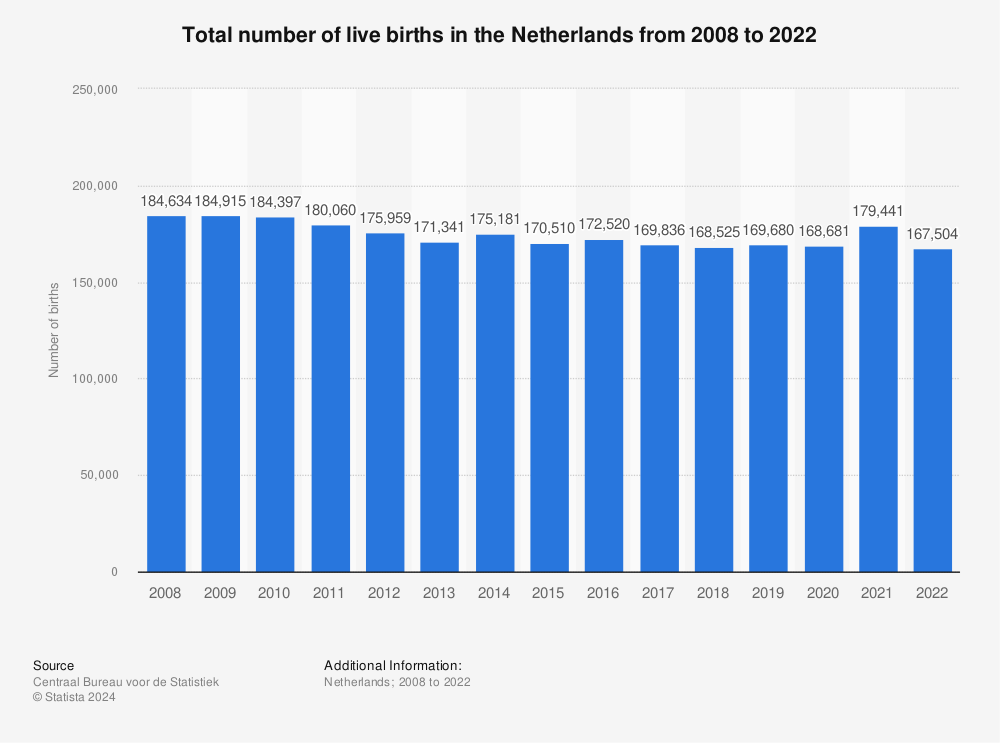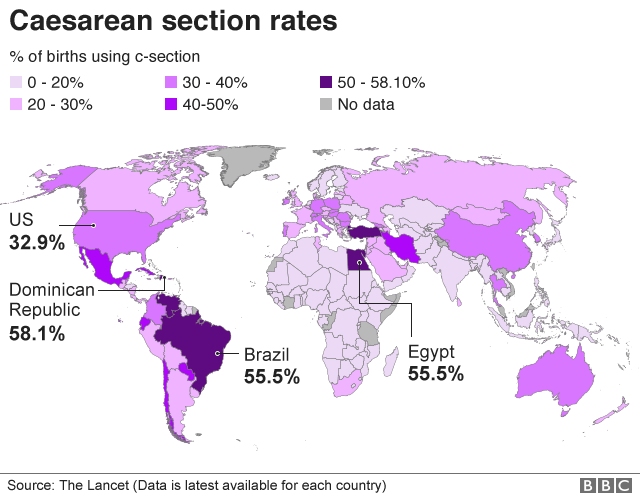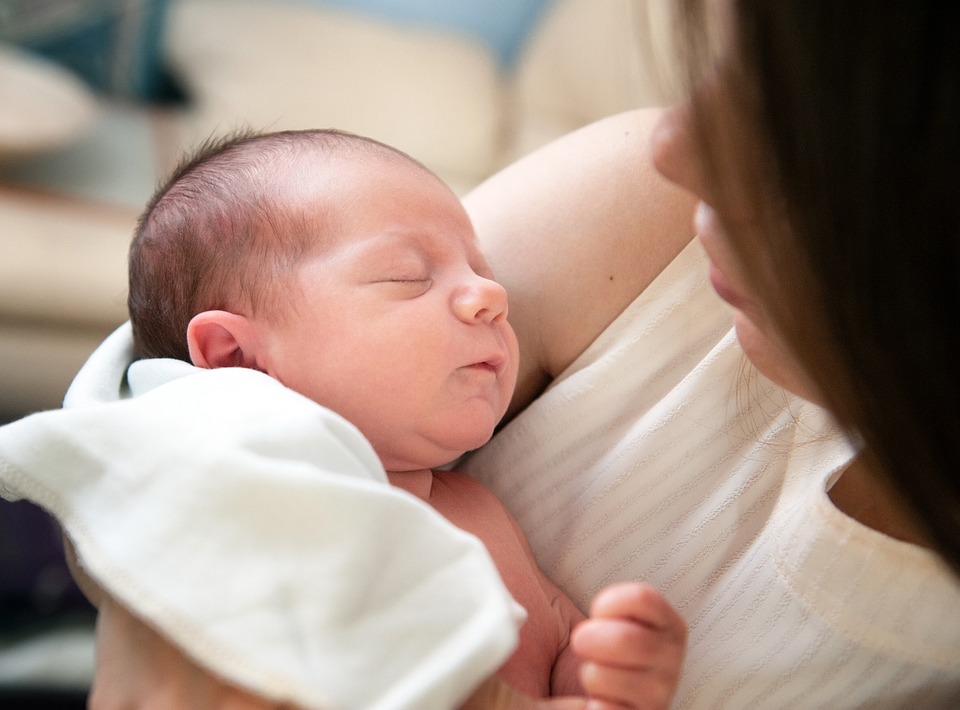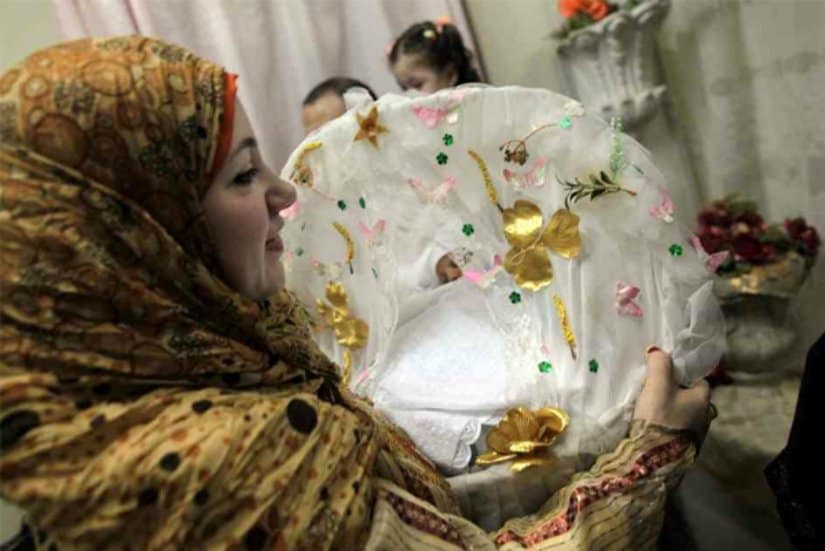Welcoming a newborn is a momentous occasion the world over and is that quintessential ‘human thing’ we do. It is that joy shared with family and friends that is universal and in many ways transcends faith, culture, and borders. Throughout history, the birth of a baby has represented the start of something new and something good, an heir to a kingdom, the strengthening of a tribe, the continuation of a family name, the removal of the curse of barrenness, the survival of mother and child, or even the start of a welcome tax break.
What differs is the way we mark the arrival of our bundle of joy. Religious and cultural customs and traditions will strongly influence our practices, perspectives and attitudes towards childbirth and how we share our joy with others; as will economic and political considerations.
Come on a journey with us and discover the unique, wonderful and often thoughtful customs and traditions with which we celebrate new life.
Giving birth – the sign of times
How and where we give birth is often dependent on a country’s health system and parent’s access to it. In numerous developed countries for example, the system tends to view birth as a medical event, heavily relying on technology (Source: Huffington Post, 2017). At the same time, many women opt for a Caesarean Section and a hospital stay, rather than a natural birth. A natural birth is preferred in most countries. It therefore aims to support both mother and baby. Clinical guidelines promote the use of midwifes, home delivery and subsequent breastfeeding (Source: the WHO, 2015).

Starting a family is a vital part of the journey of adulthood throughout countries such as Japan and the Netherlands. The Dutch have the highest number of home births in the Western world according to the Huffington Post. Brazil on the other hand, has one of the world’s highest rates of elective C-Sections after Dominican Republic. Sidestepping the unpredictability of a natural birth, elective Caesareans have also become a status symbol among Brazil’s elite.


To this day, many parents from diverse cultural and religious backgrounds still follow an ancient postpartum tradition. In fact, they keep the placenta to commemorate the baby’s birth. The organ, which provided essential nutrients and oxygen to the foetus. It leaves the body during birth and by burying or even eating the placenta. Parents honour its vital role and their baby’s connection to the earth. In Jamaica; the placenta and umbilical cord are buried at home, and a tree is then planted is the location of burial. Eventually the child will take care of it. Hindus consider the placenta to be alive and a twin to the newborn child (Source: First Cry Parenting, 2019).
Shouting it from the rooftop! Announcing a baby’s arrival
In the not too distant past, we scrambled to get a birth notice in the newspaper. Hastened to send out cards to family and friends to announce the arrival of a new family member. Nowadays, social media has largely taken over these tasks and sharing the good news is but a mouse click away. Updating family and friends is easy and they can be part of the momentous occasion. In about in real time, complete with photos and videos.

There are many ways throughout history of announcing the arrival of a new baby. Take the Russian Tsars for example: the – ill-fated – Romanovs announced the birth of an heir with a 301 gun salute! During medieval times, church bells would ring upon the arrival of a newborn. In Ancient Greece, proud parents would hang a strip of woollen cloth at their front door for a baby girl, or an olive branch for a baby boy.

Especially when it comes to welcoming a newborn baby, many traditions have stood the test of time. In Switzerland for example, parents still erect a Geburtstafel. Which is a large wooden sign, at the front of the house or flat, announcing the birth of their child with name and date. It often depicts a stork delivering the bundle of joy.

Mum’s the word – Bonding time for Mother and child
Infants need their mother the most after birth, and new mums need time for their bubs.
In New Zealand and Australia, the average hospital stay for a vaginal birth is a mere 48 hours! Returning home with a newborn can be quite daunting.
Even an entire community, to have time to bond with their newborn child. It’s also a thoughtful and caring way to show, that a parent is never alone on this journey.

Traditions
In Latin America, La Cuarentana is still common. Loosely translated to ‘quarantine’, it is a six week period of rest and abstinence from certain foods for mothers. During this period, the family pitches in with looking after siblings, cooking and other chores (Source: Huffington Post, 2017).

Japan
Similarly, it is traditional for new mothers in Japan to recover at their parents’ home for 21 days after giving birth – in bed! During this time, family members will chip in running errands so Mum can concentrate on baby (Source: Huffington Post, 2017).

Malawi
In Malawi tradition mothers are fed an afterbirth recipe. It consists of a porridge, made of soya, sugar and maize flour to regain their energy back after giving birth. (source: itv news, 2019)

In parts of Madagascar mums and their newborn babies remain inside for the first seven days after giving birth. In the Manaboaka Jabely culture, these first days are sacred and critical. It is only after that time, that mother and child make a brief appearance. Leaving their sanctuary to face the reality of live – and the bright Madagascan sun (source: itv news, 2019).

In Turkey, mothers stay home with their newborn babies for the first 20 days after giving birth. In Thailand, new mums take part in a ritual called jufaj which means staying next to a fire for 11 days to expel evil spirits and heal the uterus (Source: Romper, 2016).

To us though, Malaysian customs take out first prize. Malay mums traditionally recuperate from childbirth with a 44-day confinement period, a pantang.
This time is not just to bond with the baby. It is also time for R&R for mum. One and a half months of hot stone massages, no heavy lifting, full body exfoliation treatments, no household chores! 44 days for mums to regain their pre-baby bodies, preserve their femininity and their health (Source: First Cry Parenting, 2019)!
What’s in a name?
Everyone has to have a name! But choosing a name can be a complex and even tricky affair. Most parents will have their own ideas and rules. Such as ‘the initials should not be an acronym for a terrorist group’, or ‘can everyone pronounce it?’. Or ‘It can’t be Bridget, because I knew a Bridget once who wasn’t very nice’.
Naming a baby can have a spiritual or religious significance. Usually at a naming ceremony.

Traditional Judaism & Catholic
Catholic parents will often choose a Biblical or Saint’s name for their babies. Jewish children have a Hebrew name. They are also provided a secular name. Interestingly, Sephardic Jews tend to name their newborn after a living relative. Whereas Jews with European ancestry will likely name their infant after a deceased family member Source: Judaism).
Greek Orthodox religion
Traditionally named after their grandparent. In the Sikh faith, the priest will read aloud a random passage from the Guru Granth Sahib, the holy book. From this, the family will choose a name for the baby by using the first letter of the page opened. (Source: OhBaby)


To complicate things, take countries like Denmark, New Zealand and Germany for example, where names must be gender specific, first names cannot be a surname. In China, a name must be computer readable; in Iceland, it cannot contain the letter ‘C’ and in Thailand, babies cannot have the same name as a member of the royal family (Source: Mentalfloss 2010).


If that’s not enough to confuse any new parent, then bear in mind that they at least get a choice. This is very different for parents of the Wikmungkan Tribe in Australia. During childbirth, the midwife chants the names of family members. The name she is chanting when the placenta is delivered becomes the child’s name. (Source: OhBaby)
For many cultures, the 7th day after birth seems to hold great significance when it comes to ceremonies.
Egyot
Traditionally in Egypt, a newborn is not named until they’re 1 week old. Parents host a Sebou, a naming ceremony, on the 7th day. This includes placing the baby in a large sieve and rocking it gently, then lying it on the floor with a knife alongside her or him and the mother side-stepping over the infant seven times while guests chant. These rituals will prepare the child for the motions and sounds of life. They also expect they will also ward off evil spirits.
Another ritual involved lighting a few candles. Each candle is given a name and then lit. The baby’s name will be the one from the longest burning candle. Within Muslim families, sacrifice’s are offered such as a goat. The meat is served to the guests.

Pakistan
A traditional naming ritual, the aqeeqah, for a newborn baby in Pakistan or in fact in many parts of the Muslim world, will take place either on the 7th, 14th or 21st day. This practise involves the newborn’s hair being shaved. The hair is then collected and weighed. That weight will be offered to a charity in gold or silver (or the equivalent monetary value) (Source: Essential Baby, 2013).

Another intriguing method, practiced in Nigeria. A naming ceremony takes place on the seventh (for a girl) or the ninth day (for a boy). Part of the ritual symbolised to help the baby have a long and happy life and ward off enemies.
Family history, long standing family traditions, religion and the family circumstance all play a significant role when selecting names.

Lastly, we will look at the Jewish ritual ‘B’rit Milah’. Boys, named during their circumcision procedure. The ancient practice takes place 8 days after the boy is born, usually during morning prayers, followed by a festive meal. Male circumcision itself has become quite commonplace in many Western countries and cultures. Also practiced in Christianity and Islam. Though it is only a religious requirement in Judaism (Source: Huffington Post 2016)
Newborn’s first experiences
A newborn’s life is full of firsts. Let’s have a look at just a few of them.

Many followers of the Muslim and Hindu faith believe that a baby’s first taste should be something sweet, so that the child will speak sweetly. Hindus will typically rub a little bit of honey into the baby’s upper palate, Muslims use either soft fresh dates or a little bit of honey (Source: Huffington Post 2016).


Traditionally, Balinese parents will not allow their babies’ feet to touch the ground until day 210 after birth! They believe – rightly so – that children are divine and descended from heaven. On the 210th day, when a little one touches the ground for the first time, it is believed that he or she ‘crosses over’ into our world and becomes human (Source: FirstCries Parenting).

Scandinavia
In some of the Scandinavian countries, you could say they practice just about the opposite. Parents believe that their baby will sleep better if exposed to the local climate. Even to a Nordic winter. They also leave babies to nap outside for some quiet parent time (Source: FirstCries Parenting).

Muslims believe that the first words a newborn baby should hear is the call to prayer (“God is great, there is no God but Allah. Muhammad is the messenger of Allah. Come to prayer.”). The father traditionally whispers the adhan, the prayer, into the child’s right ear. (Source: Huffington Post, 2016).

Nigeria
A simple custom practiced in Nigeria. Where the baby’s grandmother will give it the first bath. If she is not around, the honour goes to another family member or close friend. It may not seem significant, but it is a lovely way to show the parents that they are not alone and that the whole community will support them in bringing up their child (Source: Huffington Post 2017).

Okuizome, the first food ceremony observed in Japan. The celebration involves the newborn. The food -insinuated to be fed – but not actually given. It’s a tradition dating back to Heian times to ensure a child will never go hungry throughout life. Similarly in Hinduism, the first time a baby feeds, celebrated with annaprashana. The day for this ritual, deemed the most blessed for the child, chosen by a priest (Source: itv news, 2019).
Gifts, visitors, and more celebrations
Let’s be honest, universally, most celebrations centre around lots of food and (often) lots of drinking. Sharing the joy of the safe arrival of a new family member is no different.
In Uganda, newborn’s celebrated with beer and dancing. The British tend to celebrate by ‘wetting the baby’s head’ which boils down to the dad and his friends having a drink (or several) at the local pub to celebrate the new baby. In Islam, goat’s and sheep given to celebrate. The meat prepared for the feast and the food divided. One portion for the immediate family. One for friends and relatives. The third portion given to the poor. (Source: FirstCry Parenting) In Turkey, Lohusa Serbeti, a drink made with cinnamon, sugar and red food colouring, is first given to the mother in hospital, then given to guests who visit at home (Source: Huffington Post 2017).



Brazil
In Brazil, preparations for the party start well before the baby is even born. Rather than visitors bringing gifts, expecting mums prepare small ‘thank you’ baskets. Given to visitors (Source: FirstCry Parenting). Similarly, in Chinese tradition, guests of a ‘Full Moon Ceremony’ to welcome the baby, receive a red dyed egg from new parents. Why a red egg you might ask? Red, believed to be the colour of happiness; the egg’s oval shape symbolises longevity and the egg itself represents life and life changes (Source: FirstCries Parenting).


Turkey
Talking about eggs, Turkish mums traditionally stay home with baby for the first 20 days. After that time, they will take their child to visit friends and collect a handkerchief with an egg and candy. The egg, believed to help keep baby healthy, the candy is for good-naturedness (Source: Romper, 2016).

Visitors in Scotland customarily bring coins for the newborn. Meant to bring prosperity (Source: itv news) and in Guyana it is tradition for visitors to bring golden bracelets.
Protecting the child – Religious and spiritual rituals
A common theme in many societies seems to be to save the child from harm and evil spirits and to help her or him to lead a happy and prosperous life.
Take Baptism for example, an actual or symbolic immersion in water that happens in several religious rituals and at different stages in life. It is common practice in Catholicism, there to cleanse and absolve the baby of the ‘original sin’ (Source: Huffington Post, 2016).
In Japan’s Shinto tradition, a newborn’s taken to visit the family shrine or local place of worship by their parents and grandparents. This ceremony, called miyamairi, and held within 30 to 100 days after birth is the customary way to welcome the child as a new follower. It is the ritual to present the baby to the deities and ask for their protection

Whilst Godparents are perhaps most common in Catholicism, the habit to invite an adult member of your community or your family to take on the role of a Godparent is found in several cultural as well as religious traditions. Especially in Catholicism, it is seen as an important duty, rather than a mere honour. Not only are Godparents asked: ‘Are you ready to help the parents of this child in their duty as Christian parents?’ in the Catholic sacrament of Baptism, they’re also expected to raise a child, should something happen to the parents (Source: Huffington Post 2016).

Latvia
In Latvia, the Godparents are chosen with extra care, as the child is believed to inherit their spiritual qualities. Latvian baby boys will get two Godfathers and one Godmother and baby girls will get two Godmothers and one Godfather.

Parents all around the world have done it; friends of new parents have watched in disbelief: singing nursery rhymes and sometimes made-up songs to our little treasures. Although less widely composed today, New Zealand/ Aotearora’s Maori population, however, have really upped the game here with the Oriori. Their Oriori can be best described as a heart-felt educational song, created to pass on to a child her or his spiritual heritage and lineage. It should include all that a parent feels is important for the child to know; pride, ancestors’ accomplishments or the good wishes of the family for example. (Parenting Resource NZ).
Governments walking the walk
How do countries acknowledge and celebrate new life? What do they do, other than tax credits, to help new parents and welcome a baby?
Take Finland for example. Since 1949, every parent, whether biological or adoptive, receives a ‘starter pack’, a box filled with goodies such as toys, sheets, nappies, gender-neutral clothes. It is meant to give every child, whether rich or poor, an equal start in life (Source: FirstCries Parenting).
The maternal health care in Germany has long been applauded for its ease of access and thoughtfulness. Helpful processes such as having a booklet (The Mutterpass), ready for mothers at their very first doctor’s appointment and charting the pregnancy and birth is just one of the ways the Government helps new parents (OhBaby).
The Swiss Government provides monthly payments for each child until it is 16 years of age (or 25 if studying), Japan offers a whopping 30 weeks of paternal leave, and according to Businessinsider ‘New parents in Sweden are entitled to 480 days of leave at 80% of their normal pay. That’s on top of the 18 weeks reserved just for mothers, after which the parents can split up the time however they choose.’
What amazing ways to celebrate babies! In fact, we couldn’t imagine a society that doesn’t welcome new life.
Sources:
The Washington Post: https://www.washingtonpost.com/world/the_americas/c-sections-are-all-the-rage-in-brazil-so-too-now-are-fancy-parties-to-watch-them/2019/06/11/8d2533ac-7bfc-11e9-b1f3-b233fe5811ef_story.html
Huffington Post 2017: https://www.huffpost.com/entry/world-birthing-traditions_n_7033790
itv news, 2019: https://www.itv.com/news/2019-02-22/in-pictures-how-different-cultures-celebrate-arrival-of-babies
Romper, 2016: https://www.romper.com/p/11-ways-people-around-the-world-celebrate-the-birth-of-a-child-17772
Judaism: https://reformjudaism.org/what-expect-baby-naming
OhBaby: https://www.ohbaby.co.nz/baby/your-newborn/welcoming-babies-all-around-the-world
FirstCry Parenting: https://parenting.firstcry.com/articles/interesting-baby-welcoming-traditions-from-around-the-world/
Mentalfloss 2010: https://www.mentalfloss.com/article/25034/8-countries-fascinating-baby-naming-laws#:~:text=1.,or%20products%20as%20first%20names.
Essential Baby 2013: http://www.essentialbaby.com.au/birth/options/how-different-cultures-celebrate-birth-20131003-2uxmw
Huffington Post 2016: https://www.ileoduduwa.com/naming-ceremony-yoruba-culture/
Parenting Resource NZ: https://www.parentingresource.nz/session-notes/oriori/
BusinessInsider 2020: https://www.businessinsider.com/countries-with-best-parental-leave-2016-8?r=AU&IR=T#sweden-4



